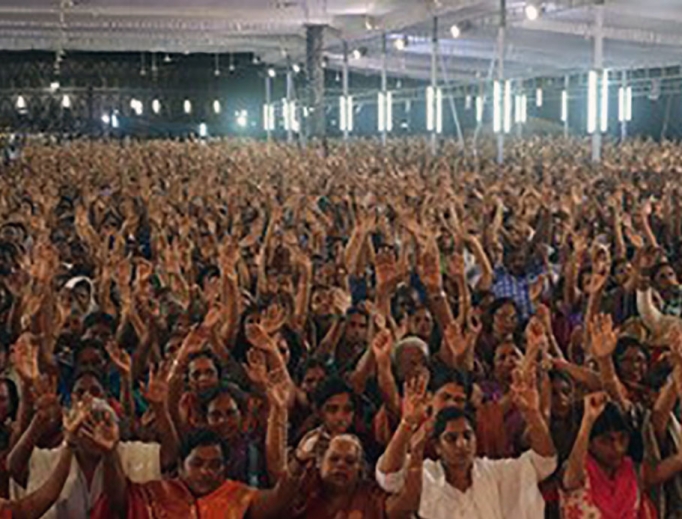Church Takes Steps to Resolve Syro-Malabar Church Land Sale Conflict
The sale of Church lands, authorized by Cardinal George Alencherry, had generated media controversy and public protests by his own priests.

KERALA, India — A bitter and lingering feud in the vibrant Syro-Malabar Church in southern Kerala, over the sale of Church property that caused a major financial loss, has been doused with the intervention of prominent leaders of other Catholic rites.
“We are happy that we have been able to initiate steps in the reconciliation and taking every one into confidence on this heavy burden,” Cardinal Baselios mar Cleemis, Catholicos of the Syro-Malankara Church, told the Register March 27.
Cardinal Cleemis, who until February served as president of the Catholic Bishops’ Conference of India, was referring to brokering peace and reconciliation March 24 in the conflict that has been plaguing the Syro-Malabar Church in recent months.
The controversy erupted publicly after Christmas over the controversial sale of prime land owned by the Ernakulam Angamaly Archdiocese, headed by Cardinal George Alencherry, the head of the Syro-Malabar Catholic Church, to settle bank outstanding dues.
Allegations that the land sale authorized by Cardinal Alencherry, without the concurrence of his two auxiliaries and other local Church officials, had caused a loss of more than $2 million (estimates vary) and resulted in a majority of his own priests marching to the cardinal’s residence in mid-March, demanding his resignation.
The protest culminated weeks of furious debate in the media over the questionable land deal. Others in the Church defended Cardinal Alencherry — branding the protests as a ploy to make the major archbishop abdicate office.
“The debate had become a heavy burden for the entire Church,” explained Cardinal Cleemis. “That is why we stepped in. We held five rounds of talks with all the concerned — laity, priests, auxiliary bishops [of Ernakulam Angamaly], senior bishops of the Syro-Malabar Church, and Cardinal Alencherry. After the final joint session where the various issues were discussed, consensus was achieved.”
“Through dialogue and proper action, the issues relating to the sale of land in the Ernakulam-Angamaly Diocese will be resolved,” said a joint statement issued March 24 by Cardinal Alencherry and his two auxiliaries, Bishop Sebastian Edayanthrath and Bishop Jose Puthenveettil.
The Cardinal’s Apology
A day earlier, at a meeting chaired by Cardinal Cleemis and Archbishop Soosa Pakiam of Trivandrum to discuss the issue openly, Cardinal Alencherry apologized for his lack of transparency in the land sale.
“When the cardinal expressed willingness to repeat the apology at the priest’s council [March 24], we told the cardinal that there was no need for apology,” Father Kuriakose Mundadan, the secretary of the Archdiocesan Priests Council, which includes 456 priests, told the Register March 27. “The path for reconciliation has been opened. We will pursue this to resolve all the issues.”
Cardinal Cleemis said he is hopeful that the reconciliation process will lead “to repairing the broken cordiality and give the message of unity to the faithful. There have been lot of misunderstandings, too.”
National media headlines trumpeted news of the land sale dispute and the open protests and counterprotests, exacerbating the division in the Church over the matter.
“We are happy that the step for reconciliation has been accepted by all in the Lenten spirit. This [dispute] had become an embarrassment for the entire Church in India,” admitted Cardinal Cleemis, who heads the nearly 1 million-strong Syro-Malankara Church, which reunited with the Catholic Church in 1930.
The Syro-Malabar Church, headed by Cardinal Alencherry, meanwhile, traces its heritage to St. Thomas the Apostle, who is said to have reached the coast of Kerala coast in A.D. 52 in the company of spice merchants from the Middle East. One of the most vibrant Churches in the Catholic communion, the Syro-Malabar Church has sui iuris (self-governing) status, consisting of more than 5 million faithful in 34 dioceses located in Kerala and elsewhere, including a diocese based in Chicago.
Apart from the Syro-Malankara Church and the Syro-Malabar Church, Kerala’s third local Catholic Church is the Latin rite. Archbishop Pakiam is the head of the Latin-rite Church in Kerala, as well as serving as president of the Kerala Catholic Bishops’ Council, which comprises all three rites.
Palm Sunday Remarks
Addressing the Palm Sunday Mass at St. Mary’s Basilica in Ernakulam, Cardinal Alencherry admitted that power and money could draw people astray.
“All are impure in one way or the other. You and I are also among those who are impure. Individuals, families and the Church need to be purified,” the head of the Syro-Malabar Church told the faithful.
Said the cardinal, “We should purify ourselves, and purification at the time of Palm Sunday should be a deep one.”
Register correspondent Anto Akkara is based in Bangalore, India.

- Keywords:
- anto akkara
- church in india

















